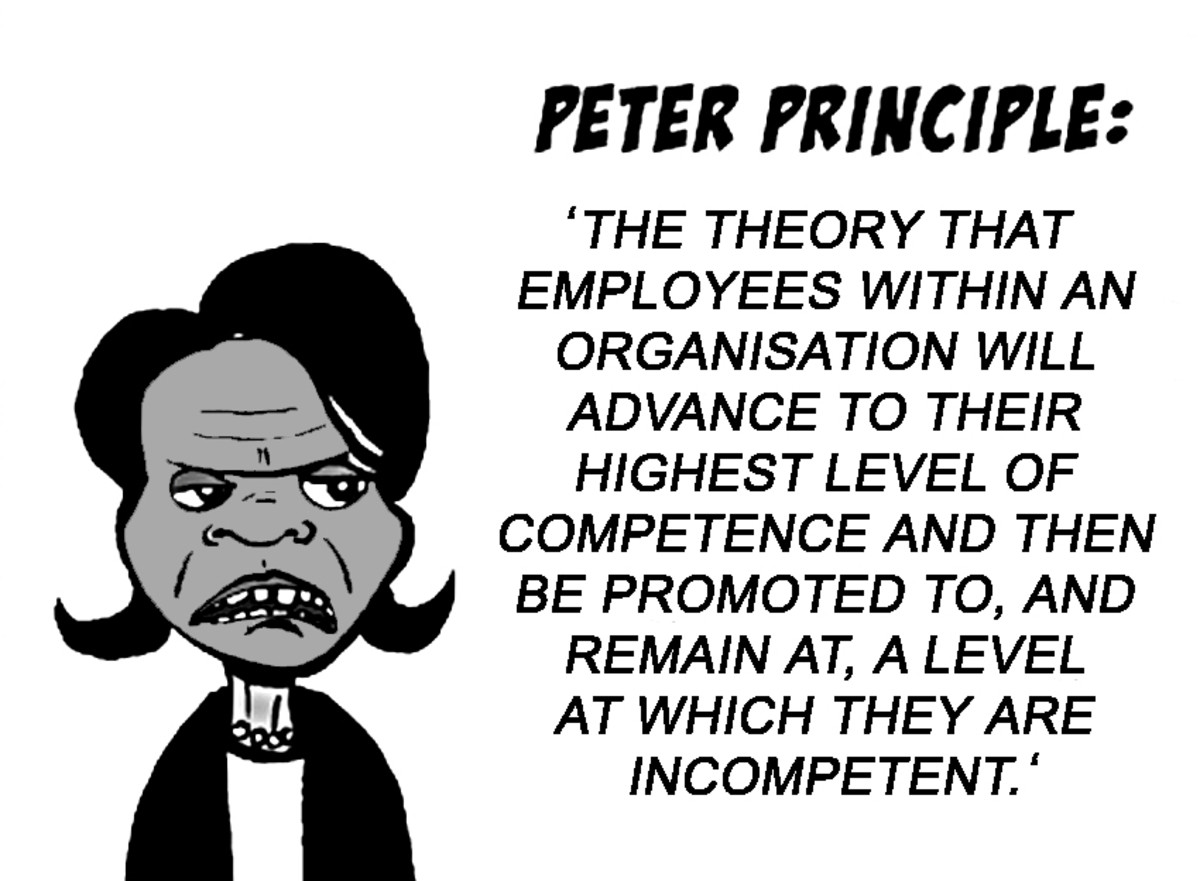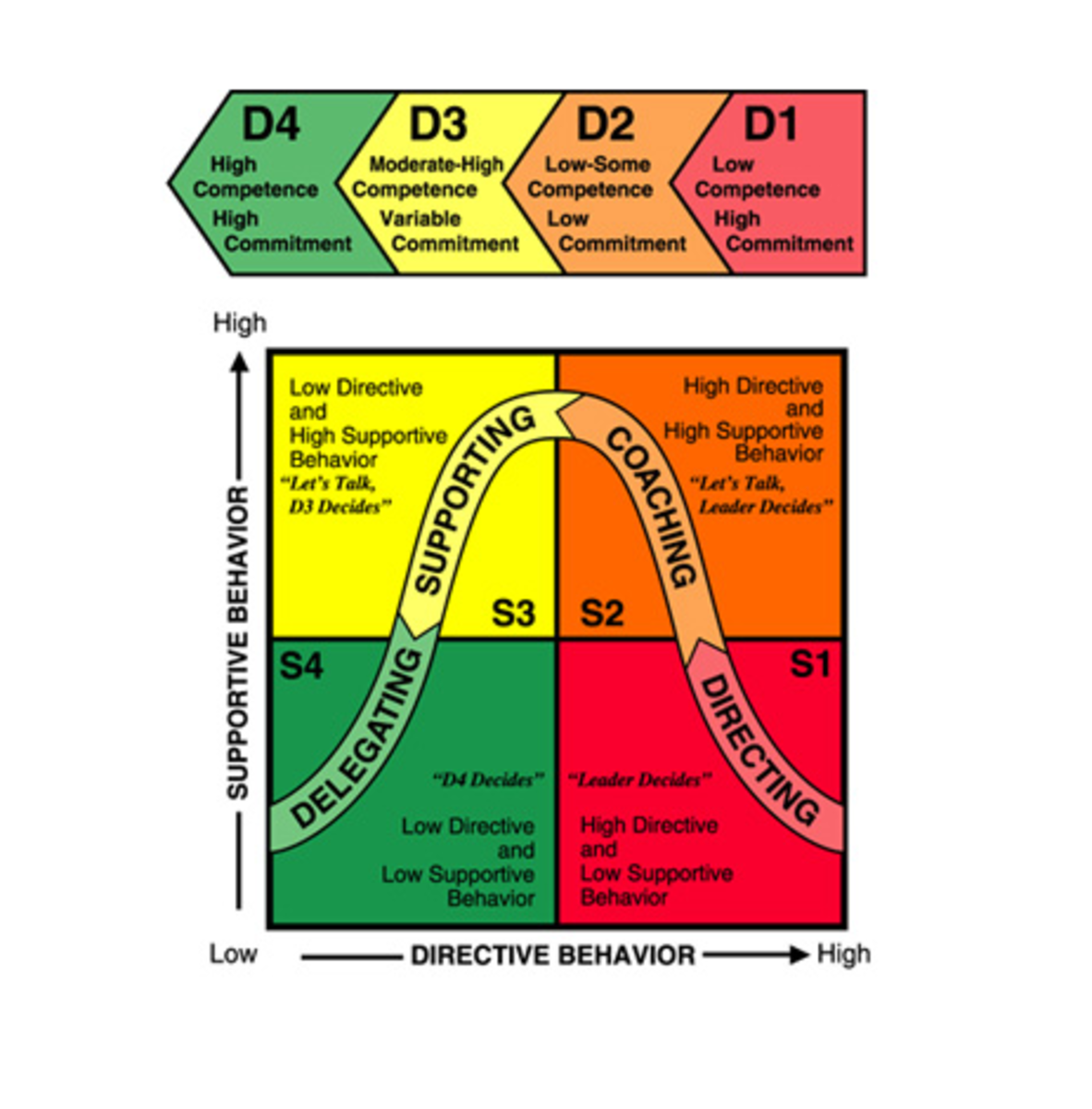Job Satisfaction: It is Possible
When interviewed by a consultant during his company’s strategic management improvement efforts, one supervisor said:
“The frustrating thing about this company is that people like me are constantly being beaten. And I don't respond well to being beaten. I push back by delegating less, and doing things myself to keep my crew out of ‘direct fire’. Our management team keeps information to themselves and that gives me little or no tools to work with. Everyone is unhappy and looking for someone to blame for it. Look, I've been with this company for a long time, and I know I'm lucky to have a job with the economy the way it is, but in the last few years, I've come to the point where I can’t honestly say I like working here anymore.”
When employees reach this level of frustration, productivity is at risk. Individuals may start arriving late for work, or spend less time actually doing work when they are there. They may spend time daydreaming or chatting. They may be less patient with co-workers and/or customers. Once highly-motivated individuals might start doing the minimum amount of work required; and may call in sick more often. Monday may develop into the company’s lowest production day because key employees may not have slept well Sunday night, stressing over having to go into work the next morning.
All of these productivity factors are of concern on a company level. At this point management should be considering revisions to company policy, structure and strategy. Empowerment and involvement of employees at every level should be the goal. Where training (or re-training) is necessary, it should begin immediately.
An Important Note to Managers about TQM
W. E. Deming, an American engineer, developed systems of management and organization that revolutionized post-WWII Japanese manufacturing and industry. His systems, though proven hugely successful, and integral to modern Total Quality Management, were only marginally adopted in the United States.
More accepted in the post-war United States, were management systems in which power and information are kept at the top, and in which the employees worked under constant inspection and in constant fear of losing their jobs. Some key elements of those management systems have remained part of the overall management strategy in many companies and government agencies around the world.
In these organizations lower-level employees are rarely trusted, and are usually under-compensated. Mid-level leadership may have a great deal of inspection responsibility and little or no authority. This has been called, in some analyses, the most significant contributor to job dissatisfaction.
The World We Work In
Many people in many countries can truthfully say they work in a job they are unhappy with. And the reasons can vary widely. Maybe you work for a company where management “styles” are straight from the recommended reading list of the “Keep the Employees in Fear Society of Management Professionals” (a fictional organization). Perhaps pay rates are low, or advancement opportunities scarce. Working conditions may be poor, or you may be experiencing difficulty at home while working the night shift. You may not get along with one of your coworkers, or your supervisor’s behavior may seem intolerable. There may be a lack of health benefits, or your retirement outlook may seem bleak. You may not have enough work hours to comfortably support your family; or conversely, you may not have enough time off to actively participate in your children’s lives or in your favorite recreational activities.
Job satisfaction is important if a healthy home and family life is to be achieved. A less than satisfying job can drain the relatively minimal hours spent at home and with family of their joy and quality. Job stress can shorten life itself.
Taking Job Satisfaction Personally
On the individual level, employees who are unhappy with their job have options as well. Though it may not be possible to simply pack the contents of your desk into a box and walk across the street to another company and another desk, personal satisfaction with the situation can still be reached. Stress has been proven to be the major cause of many illnesses; and the stress caused by job dissatisfaction need not be so high.
The Mayo Clinic staff published a helpful list of ways for less-than-happy employees to develop some level of satisfaction in the work that they do.
How To Make Work More Rewarding- by Mayo Clinic Staff
- Create new challenges. Take on a project that can motivate you and give you a sense of control. Start small, such as organizing a work-related celebration, before moving on to larger goals. Working on something you care about can boost your confidence and job satisfaction.
- Mentor a colleague. Once you've mastered a job, you may find it too routine. Helping a new team member or an intern advance his or her skills can restore the challenge and the job satisfaction you desire.
- Expand your skills. If you're feeling bored, ask your supervisor about cross-training. Perhaps you could train for new or additional tasks. If your company is launching a new project, volunteer for the team.
- Learn from your mistakes. Don't let setbacks erode your job satisfaction. When you make a mistake at work, learn from it and try again. If you receive a less than stellar appraisal, ask about attending seminars or taking classes to improve your performance.
- Stay positive. Use positive thinking to reframe your thoughts about your job. When you catch yourself thinking your job is terrible, stop the thought in its tracks. Remember, everyone encounters good days and bad days on the job.
- Be grateful. Gratitude can help you focus on what's positive about your job. Ask yourself, "What am I grateful for at work today?" If it's only that you're having lunch with a friendly colleague, that's OK. Find at least one thing you're grateful for and savor it.
- Nurture your passion. If your job satisfaction has waned, but seeking a new job isn't a realistic option, you might consider your current job as a welcome paycheck that allows you to focus your energy on interests outside of work. Sometimes work is simply a means to enjoy those things you're truly passionate about.
Changing Your Approach
As suggested by the Mayo Clinic, there are basically three ways to approach work. The three are not necessarily applicable in all situations, and one is not necessarily better than another. All three may have something that will help an individual find that higher level of satisfaction necessary to avoid stress.
- It's a job. If you approach work as a job, you focus primarily on the financial rewards. The nature of the work may hold little interest for you. What's important is the money. If a job with more pay comes your way, you'll likely move on.
- It's a career. If you approach work as a career, you're likely interested in advancement. Your current job may just be a steppingstone to your ultimate goal. What's important is to be regarded as a success in your field.
- It's a calling. If you approach your job as a calling, you focus on the work itself. You're less interested in financial gain or career advancement, preferring instead to find a sense of fulfillment from the work itself.
The Risks to Life and Health
In the course of a workweek an employee can become very confident when endeavors lead to success. He or she can go into a weekend feeling exceptionally proud and might take that selfishness into the weekend. Nothing at home can compare to sitting on top of the mountain at work. That person can be disinterested in or disapproving of family. Home life, sobriety and faith can take a back seat to a man's selfish desires.
At equal risk is the employee who finishes a workweek beaten, humiliated and exhausted. That person can easily turn to overindulgence, or self-isolation on weekends. The result is much the same with regard to home life, sobriety and faith.
Seek balance. If your current job doesn't afford you that, and you're looking for another in this exhausted and exhausting economy, seek to manually tip the scales just a wee bit... Just enough to keep your head on straight, and your self out of yourself . Try dedicating time to a new hobby, or to a charity. Try listening to music when you're stressed or when you need to "regain a healthy balance". You can find something that will help you do the same without sacrificing the ones you love.
Quick Tips:
We All Have a Job... At Home or Away... Payed or Not
Rate your job satisfaction level.
© 2010 Mr. Smith








